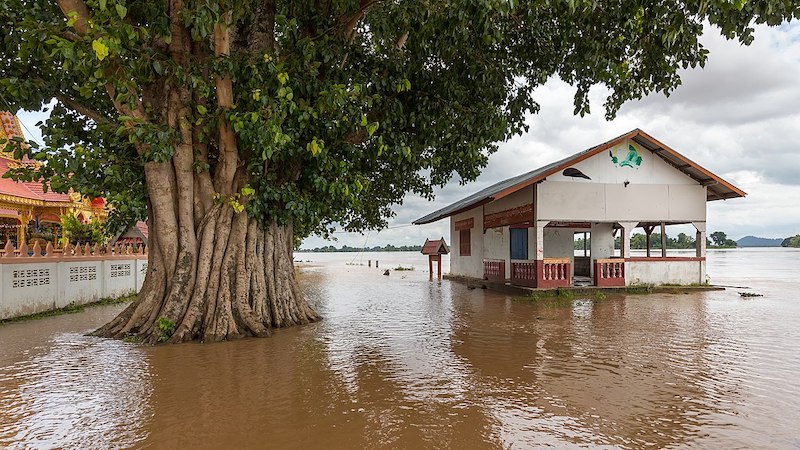Vulnerable communities disproportionately affected by global warming are being given ‘insufficient’ funds to help adapt to extreme climate impacts, the latest report from the Intergovernmental Panel on Climate Change (IPCC) says.
“Current global financial flows for adaptation are insufficient for, and constrain implementation of, adaptation options, especially in developing countries”, the scientists report says.
Wealthy governments have failed to provide $100 billion of climate finance a year they promised to developing countries by 2020, with the US responsible for the vast majority of the shortfall.
Finance for adapting to climate change – rather than cutting emissions – has been particularly low.
At Cop26 in 2021, all countries agreed that developed nations would double their adaptation finance by 2025 on 2019 levels and a group of self-proclaimed “champions” has been set up to try to implement this.
Adaptation becomes harder
The IPCC’s scientists warned time for adaptation action is rapidly running out because measures will increasingly become ‘constrained and less effective’ as temperatures rise.
When countries can no longer adapt to climate change, they will suffer devastating loss and damage as a consequence of escalating climate-related hazards like heatwaves, droughts and storms.
The United Nations Environment Programme (Unep) estimates $340 billion will be needed every year for adaptation, but only about 7% of climate finance flows are currently spent in that direction.
‘A huge injustice’
Aditi Mukherji, one of the authors of the report, told Climate Home that the lack of funding forces low-income countries into further debt.
Seventy-one percent of public climate finance was provided through loans in 2020, with grants having much smaller role, according to the latest assessment by the OECD.
“It is a huge injustice”, Mukherji said. “Least developed countries and coastal communities who have not caused the problem are now having to take loans to solve the problem. It makes hardly any sense.”
The IPCC report summarises the state of knowledge of climate change science, its impacts and risks and the progress made on mitigation and adaptation. The text was approved by all member governments after a week-long session in Switzerland.
Insufficient climate action
Scientists say the pace and scale of what has been done so far, and current plans, are insufficient to tackle climate change.
While highlighting the lack of money for adaptation, the report also says climate finance also needs to increase ‘many-fold’ for emissions-cutting measures in order to achieve climate goals.
World Bank proposes freeing up $4bn by loosening lending rules
Despite absorbing the overwhelming majority of the money pot, funding for measures to cut emissions still falls short of the levels needed to limit warming to 1.5°C across all sectors and regions.
“Adaptation and mitigation are closely interlinked,” Mukherji said. “Unless we reduce our emissions now we are locked in a cycle of irreversible impacts”.
“We cannot think we can continue to emit, make the planet warmer and those who are affected will continue to adapt. That is not going to happen. Adaptation will always have some limits.”
Adaptation limits reached
The report says some tropical, coastal, polar and mountain ecosystems have already reached hard adaptation limits. That means any action becomes unfeasible to avoid risks. An example is when a small island becomes uninhabitable due to sea level rises and lack of freshwater.
The IPCC has also found ‘increased evidence’ of maladaption, which occurs when measures backfire and increase vulnerabilities.
Mukherji says there is a need for a less technocratic approach. “The most appropriate actions need to be decided by those who are most affected. You cannot go from outside and impose views on the communities,” she said.
